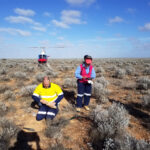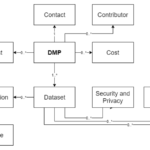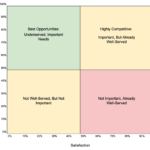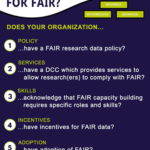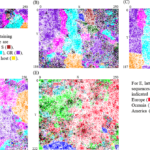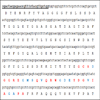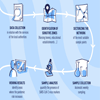This is the second in the series of short statements from candidates in the coming CODATA Elections at the General Assembly to be held on 15-16 November, 2021. Elena Rovenskaya is a candidate for the CODATA Executive Committee as an Ordinary Member. She was nominated by Russia.
 Elena Rovenskaya is Principal Research Scholar and Director of the Advancing Systems Analysis (ASA) Program https://iiasa.ac.at/web/asa.html at the International Institute for Applied Systems Analysis (IIASA) in Austria. She is also Research Scholar at the Optimal Control Department of the Faculty of Computational Mathematics and Cybernetics, Lomonosov Moscow State University, Russia (currently on leave).
Elena Rovenskaya is Principal Research Scholar and Director of the Advancing Systems Analysis (ASA) Program https://iiasa.ac.at/web/asa.html at the International Institute for Applied Systems Analysis (IIASA) in Austria. She is also Research Scholar at the Optimal Control Department of the Faculty of Computational Mathematics and Cybernetics, Lomonosov Moscow State University, Russia (currently on leave).
Broadly, Elena Rovenskaya’s scientific interests lie in the fields of optimization, decision science, and mathematical modeling of complex socio-environmental systems. As one important avenue, recently, she has been focusing her research on using qualitative and quantitative methods to support decisions in settings dominated by uncertainty.
In line with her research interests, Elena Rovenskaya has been an active member of the CODATA Task Group “Advanced mathematical tools for data-driven applied systems analysis” https://codata.org/initiatives/task-groups/applied-systems-analysis/, which is one important channel through which CODATA collaborates with IIASA. As part of this Task Group’s activity, recently Elena Rovenskaya organized a workshop at IIASA that aimed to facilitate a dialogue with modelers and systems analysts on Open Data and Open Models
https://iiasa.ac.at/web/home/research/researchPrograms/AdvancedSystemsAnalysis/200224-codata.html.
In her work of the ASA Program Director, Elena Rovenskaya leads a highly international team of about 90 researchers who focus their efforts on innovating in terms of methods, approaches, and data to be used to support the transition to sustainability. ASA research is highly interdisciplinary and often transdisciplinary with many projects involving policymakers and citizens. As one example, Elena Rovenskaya co-leads a project that looks into patterns of COVID-19 spread https://iiasa.ac.at/web/home/about/210205-IIASA-RFBR-pandemic-research.html.
Elena Rovenskaya’s personal statement on the motivation to be considered for the role of an Ordinary Executive Committee Member:
I am interested in this role because I am very much interested in facilitating a stronger linkage between data and modeling that serves to support decisions related to sustainability at global, national, and local scales. Modeling and policy demands pose specific needs and challenges in regard to data that should feed into models, such as inter-operability, validation, non-numeric data – to name just a few. Private sector holds a wealth of data that could be used for sustainability research. Finding ways to use these data in the interests of the society is another important challenge. I feel that my understanding of the current trends in systems analysis, disciplines that deal with the transition to sustainability, and policy implementation research can contribute to strengthening CODATA’s mission to promote international collaboration to advance Open Science and to improve the availability and usability of data for all areas of research.

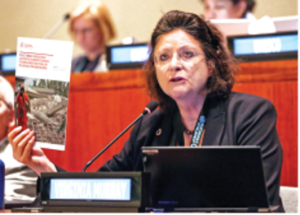


 Professor Richard Hartshorn, Secretary General of the International Union of Pure and Applied Chemistry (IUPAC) will continue to be an excellent member of the CODATA Executive Committee, should he be re-elected. In his role as Secretary General, and through others within IUPAC, he has demonstrated strategic leadership and gained significant experience in governance of an international science-based organization. This experience has been brought to bear as a member of the CODATA Executive Committee, particularly through providing a scientific union perspective to committee deliberations.
Professor Richard Hartshorn, Secretary General of the International Union of Pure and Applied Chemistry (IUPAC) will continue to be an excellent member of the CODATA Executive Committee, should he be re-elected. In his role as Secretary General, and through others within IUPAC, he has demonstrated strategic leadership and gained significant experience in governance of an international science-based organization. This experience has been brought to bear as a member of the CODATA Executive Committee, particularly through providing a scientific union perspective to committee deliberations.








